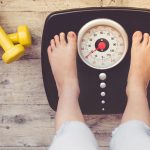The discussion over cannabis legalization sometimes leads to comparisons between marijuana and alcohol. Those in favor of cannabis legalization say it ought to be treated just like alcohol. Those against cite all the problems alcohol causes. With that debate in mind, imagine a scenario in which pot was legalized while booze was outlawed.
Guess what? It is a real thing in South Dakota. Alcohol has been banned on the Oglala Sioux reservation for more than a hundred years. But the Oglala Sioux voted to legalize medical and recreational cannabis back in 2020. While you will not find a liquor store anywhere on the reservation, there are cannabis dispensaries scattered across the reservation’s two million acres.
-
Alcohol Destructive to Society
Alcohol was banned by the Oglala Sioux very shortly after the reservation was established. Their reasoning was simple: they felt alcohol was destructive to their society. According to a Portland Press Herald report, tribal leaders say that alcohol, opioids, and meth are especially troublesome for tribal populations. They lead to “high rates of premature deaths on the reservation through car crashes, violence, and disease.”
Tribal leaders and Sioux citizens alike do not view cannabis in the same terms. Because cannabis plants can be grown and the flower consumed – via smoking – without any type of synthetic intervention, they see the plant as a natural medicine. As it turns out, the vast majority of cannabis users on the reservation consume it for medical reasons.
Some are probably using the drug recreationally, just as they would illicit drugs. But tribal leaders say they are the exceptions to the rule. Most users suffer from anxiety, chronic pain, cancer, etc. They self-medicate with cannabis.
-
Using Cannabis for Pain
There are no hard and fast numbers revealing just why tribal citizens might choose to consume cannabis. But it would be no surprise if data showed pain being the number one reason. Throughout the United States, chronic pain is the most commonly cited reason for consuming cannabis medically.
UtahMarijuana.org is an organization that helps Utah residents obtain and renew medical cannabis cards. They acknowledge that chronic pain is one of the most common complaints they hear. Others include PTSD and cancer. But even with cancer, it is the pain associated with the disease that concerns so many patients.
There is some debate over whether cannabis actually alleviates pain. Some say it does while others say it merely takes the edge off. But for someone living with chronic pain, the disagreement is merely semantic. Those who find relief through cannabis want access to the drug one way or the other.
-
Less Harmful Than Alcohol
As for the tribal leaders on the Pine Bridge Reservation, they acknowledge that cannabis is not risk-free. They admit that some level of addiction might be possible. They also acknowledge the drug’s intoxicating effects. Yet they insist that cannabis is less harmful than alcohol.
Cannabis has only been legal on the reservation for less than two years. Still, it is hard to argue with tribal assumptions. Native Americans have long struggled with the effects of alcohol within their ranks. Even today, other Native Indian nations that still allow alcohol suffer the ravages of abuse at a higher proportion than the rest of the country.
We will know in 5 to 10 years whether cannabis has harmed the Oglala Sioux. If it turns out it hasn’t, what they have done could be a model for the rest of the country. Maybe we need to legalize pot and outlaw booze. Good luck with that. We tried outlawing booze once. It didn’t work.

















